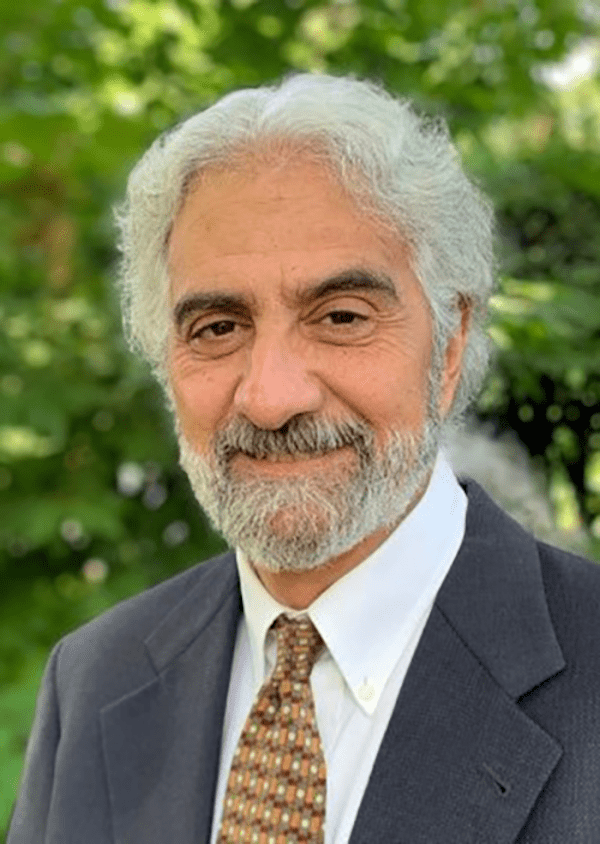Ralph Dubayah, GEOG Professor and GEDI’s Principal Investigator, Named Distinguished University Professor
The University of Maryland bestowed the highest appointment a tenured faculty member can receive—the title of Distinguished University Professor—upon Ralph Dubayah of the Department of Geographical Sciences.
"The entire BSOS community celebrates Professor Dubayah being named a Distinguished University Professor," said Dean Susan Rivera. "The impact of his work stretches from right here in College Park, Maryland, quite literally all the way to space. From his efforts in the classroom, to his tireless commitment to help combat climate change through data from the Global Ecosystems Dynamics Investigation, Professor Dubayah is undoubtedly deserving of this honor."
Dubayah traveled across the country to become a lecturer at the University of Maryland in 1990, having received his B.A. in 1982 from the University of California, Berkeley, and his M.A. and Ph.D. degrees—in 1985 and 1990, respectively—from the University of California, Santa Barbara. He progressed within the Department of Geographical Sciences in the years that followed, teaching, advising, and leading multiple noteworthy research projects.
Many such research projects have involved NASA. In fact, Dubayah has been the Principal Investigator (PI) on over 30 NASA projects involving Earth imagery collected via plane or satellite through a process called remote sensing. These projects have focused primarily on water resources, forest monitoring and biodiversity.
Through his research, Dubayah has also been intimately involved in the development and execution of several NASA space missions. He was the PI of the Vegetation Canopy Lidar (VCL) mission—a NASA mission to measure the three-dimensional structure of the Earth’s forests for carbon assessments—and Dubayah is currently on the NASA ISRO Synthetic Aperture Radar (NISAR) mission. NISAR will be launched next year and is a joint project of the NASA and Indian space agency ISRO.
Dubayah also served for over five years on the scientific steering panel for the German Aerospace Agency’s (DLR) Helmholz Alliance studying the dynamics of ecosystems, ice sheets, and solid earth using SAR remote sensing. In recognition of these efforts, he was awarded the prestigious Helmholtz International Fellow Award of the Helmholtz Association of German Research Centers.
Today, Dubayah is the PI of the Global Ecosystems Dynamics Investigation (GEDI). GEDI is led by UMD, and in a collaboration with the NASA Goddard Spaceflight Center, Dubayah and the GEDI team developed, built and launched an instrument into space (via the International Space Station) to obtain highly accurate forest height, structure, and surface elevation data through a laser-measurement method called lidar. Since its launch in 2018, data from GEDI has been used to measure and mitigate the impacts of climate change through multiple other research projects and scientific endeavors—many within GEOG. GEDI was recently moved into hibernation after five years aboard the International Space Station (ISS), and should return to operations in 2024.
"Ralph is an outstanding example of a Distinguished University Professor,” said GEOG Professor and Chair Tatiana Loboda. “His career-long contributions to the field of satellite Earth Observations, which culminated in leading the GEDI mission, have ensured that the University of Maryland is recognized as the leader in lidar remote sensing nationally and internationally."
Dubayah has also participated in hundreds of talks and numerous conferences, and shares his expertise through a significant body of published research. In addition to various leadership positions in national and international organizations, he has also played an active role on editorial boards for journals, including Environmental Research Letters, Remote Sensing of Environment, and the Journal of Geophysical Research.
“It is really an honor to join the ranks of the amazing collection of Distinguished University Professors here at UMD. This is made all the more meaningful to me given that it is this peer group of academics who evaluate and select DUP candidates. So, in this sense it is really quite humbling,” said Dubayah. “UMD is the only institution I have known, and while opportunities at other universities have presented themselves, the commitment and vision UMD has shown towards my research specifically, and more broadly towards the sustainability of the planet in all its forms, has in turn strengthened my commitment back to campus. I know of no other place that can match our excellence and am indeed grateful if my activities have contributed to this success.”
This article was first published by BSOS.
Photo of Ralph Dubayah. Courtesy of BSOS.
Published on Tue, 07/11/2023 - 15:33


